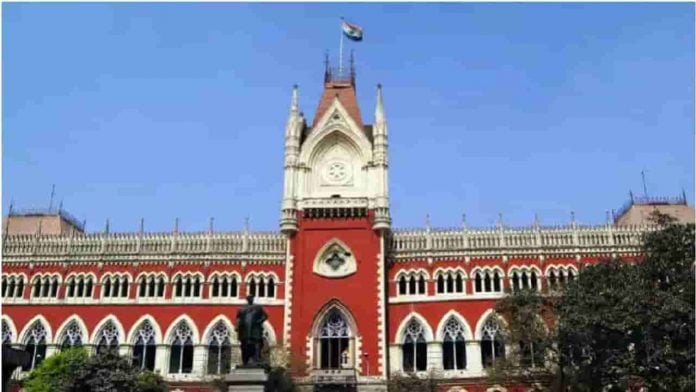The Calcutta High Court has granted bail to a man convicted for the murder of his wife while stating that it is a fit case wherein the appellant is to be held to be entitled to an order of suspension of sentence and grant of bail pending appeal. (Anupam Ghosh Vs State CrA 50/2018
The division bench of Chief Justice Thottathil B. Radhakrishnan and Justice Arijit Banerjee, during the hearing of an appeal for suspension of sentence and grant of bail, observed that the appellant who is the husband of the victim and other five accused persons were relative of the victim against whom the charges were framed by the trial court under Sections 498A/304B/302/201 of the Indian Penal Code. All the accused persons were acquitted except the appellant who was convicted by the trial court only under Section 302 IPC. The trial court pronounced the order for conviction and sentence on 5.1.2018.
The High Court perused the materials, while it dealt with earlier bail applications and noted the conclusion arrived by the surgeon that it was a suicide case, to the contrary, the trial court found it to be a murder case relied upon the materials seen in the scene of occurrence such as vomited substance, etc.
On the other hand, the additional public prosecutor made the argument that the death could have been caused by inflicting a blow on the head of victim, and hence the autopsy report of surgeon does not substantiate any such assessment.
The High Court of Calcutta was satisfied with the appellant’s submissions and ruled out that the there is likelyhood a strong prima facie case for appellant rather than sustaining the conviction, and further continued to state that this is a fit case where the appellant is to be held to be entitled to an order of suspension of sentence and grant of bail pending appeal.
The court was also apprised of the fact that the appellant had been on bail for nearly 14 years before the pronouncement of order on conviction and sentence was passed.
The Court granted bail to the husband (appellant) who was convicted for committing murder of his own wife. Let the appeal be listed for final hearing, said the Court.
The Court said, “Accordingly, we direct that the applicant/appellant shall be released on bail upon furnishing a bond of Rs 10,000/- with two sureties of like amount each, one of whom must be a local surety, to the satisfaction of learned Chief Judicial Magistrate, Purba Medinipur at Tamluk on condition that he shall report to the Officer-in-Charge of the concerned Police Station every fortnight until further orders and shall not be involved in any incriminating activity in any manner whatsoever.”
Know the Law
Section 389 (1) and (2) of Cr.P.C. deals with a situation where convicted person can get a Bail from appellate court after filing the criminal appeal. Section 389 (3) deals with a situation where the trial court itself can grant a bail to convicted accused enabling him to prefer an appeal. Since we are concerned with the power of the trial Court to suspend the sentence, section 389(3) must be taken into account.
Read Also: Covid-19: Plea in Supreme Court seeks removal of farmers blocking roads in the outskirts of Delhi
Hon’ble the Supreme Court in Ravikant S. Patil v. Sarvabhouma Bagali [ (2007) 1 SCC 673] has held that; “15. It deserves to be clarified that an order granting stay of conviction is not the rule but is an exception to be resorted to in rare cases depending upon the facts of a case. Where the execution of the sentence is stayed, the conviction continues to operate. But where the conviction itself is stayed, the effect is that the conviction will not be operative from the date of stay. An order of stay, of course, does not render the conviction nonexistent, but only nonoperative. Be that as it may. In so far as the present case is concerned, an application was filed specifically seeking stay of the order of conviction specifying the consequences if conviction was not stayed, that is, the appellant would incur disqualification to contest the election. The High Court after considering the special reason, granted the order staying the conviction. As the conviction itself is stayed in contrast to a stay of execution of the sentence, it is not possible to accept the contention of the respondent that the disqualification arising out of conviction continues to operate even after stay of conviction.”
Read the order here;
cal-498a

